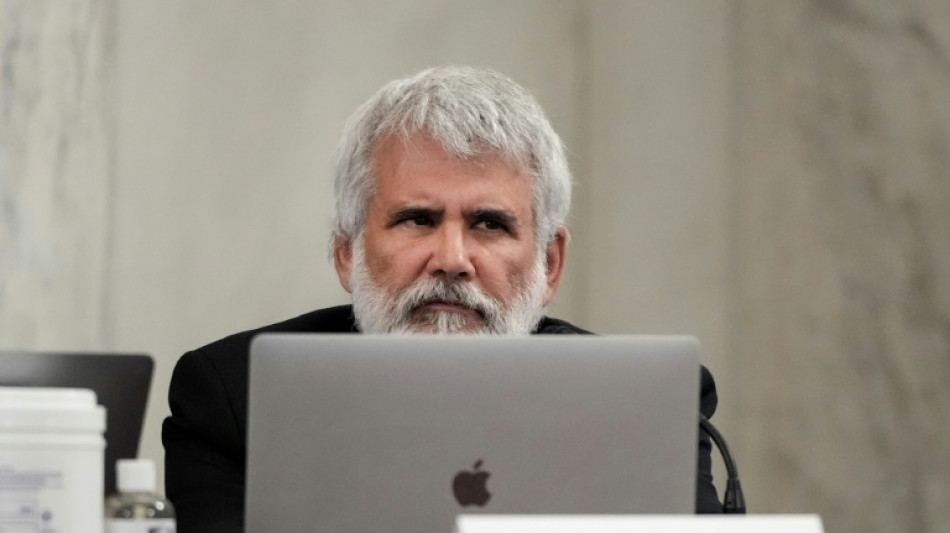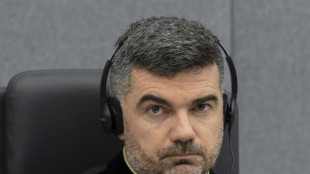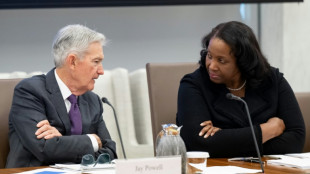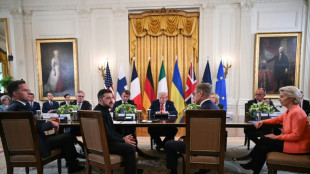
RFK Jr's medical panel to revisit debunked vaccine claims

A vaccine panel appointed by US Health Secretary Robert F. Kennedy Jr. will revisit long-settled science and spotlight rare risks linked to childhood immunizations in a meeting beginning Wednesday, raising fears that fringe theories could seep into national policy.
The Advisory Committee on Immunization Practices (ACIP), an independent body that reviews scientific evidence to recommend which groups should receive vaccines and when, rarely makes headlines.
But these are no ordinary times. Kennedy, who spent two decades spreading vaccine misinformation before becoming President Donald Trump's top health official, has brought that skepticism into the federal government.
Earlier this month he abruptly dismissed all 17 ACIP members before their terms had expired, accusing them of financial ties to the pharmaceutical industry -- despite a vetting process meant to minimize conflicts of interest.
He then appointed eight new members, including scientist Robert Malone, widely known for spreading false claims during the Covid-19 pandemic and promoting the deworming drug ivermectin.
The posted agenda includes standard topics like influenza and Covid-19 vaccines -- but the addition, on the second day of discussions, of measles, mumps, rubella, and varicella (MMRV) vaccines for young children, along with thimerosal-containing flu shots, has alarmed experts.
Ahead of the meeting, US senator and physician Bill Cassidy -- a Republican whose reluctant support was key to Kennedy's confirmation -- called for a delay, citing the panelists' inexperience and bias.
- Debunked autism connection -
Thimerosal is a mercury-based preservative long used in medicines, with no evidence of harm at low doses.
"Study after study showed that the ethylmercury in those vaccines never contributed in any important way to the burden of mercury that one is exposed to, living on this planet," vaccine expert Paul Offit of the Children's Hospital of Philadelphia told AFP.
Still, vaccine makers agreed to remove it from pediatric vaccines in 1999 in response to public concern. It remains in some flu shots.
The presenter arguing against thimerosal is Lyn Redwood, a nurse and former leader of Children's Health Defense — an anti-vaccine nonprofit once chaired by RFK Jr.
According to her biography page, Redwood blames her son's autism on vaccines -- a link that has never been proven.
The Centers for Disease Control and Prevention, which is overseeing the meeting, will argue thimerosal is safe and has no effect on neurodevelopment, based on a thorough review of the evidence.
- Rampant measles outbreak -
For childhood vaccines, US parents can choose a combined measles, mumps, rubella, and varicella (MMRV) shot or two separate injections -- one for MMR, the other for varicella.
The combination spares an extra jab but carries a slightly higher risk of febrile seizures, a rare and typically harmless side effect.
Separating the shots is already recommended for infants' first dose at age 12-47 months, leaving experts puzzled as to why the issue is being revisited. Notably, there's no planned discussion on the benefits of measles vaccines, which have prevented millions of hospitalizations.
"The discussion of MMRV vaccines, critical tools in preventing measles, mumps, rubella, and varicella, must be rooted in science, not ideology," said Syra Madad, an infectious disease epidemiologist at NYC Health + Hospitals.
The United States, which declared measles eliminated in 2000, is currently experiencing its worst measles outbreak of the disease in decades, with more than 1,200 cases and three confirmed deaths.
"ACIP is going to become an outlet for anti-vaccine propaganda and increasingly irrelevant to the practice of medicine," warned Amesh Adalja, an infectious disease expert at Johns Hopkins University.
Still, the panel's recommendations could have broad consequences, shaping school vaccine mandates and insurance coverage.
H.Leroy--PS

 London
London

 Manchester
Manchester
 Glasgow
Glasgow
 Dublin
Dublin
 Belfast
Belfast
 Washington
Washington
 Denver
Denver
 Atlanta
Atlanta
 Dallas
Dallas
 Houston Texas
Houston Texas
 New Orleans
New Orleans
 El Paso
El Paso
 Phoenix
Phoenix
 Los Angeles
Los Angeles



